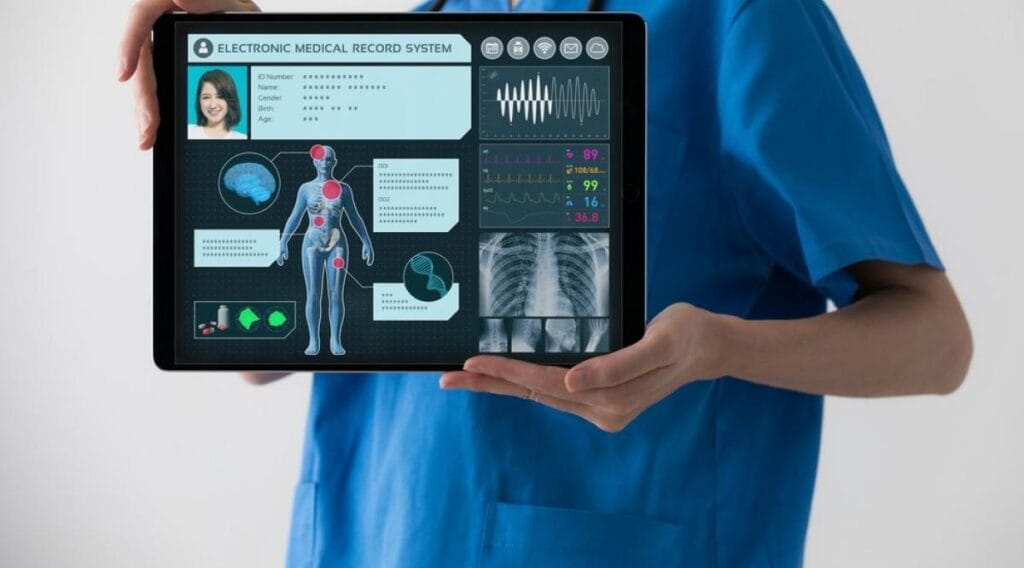
In the modern era of technological advancement, the healthcare industry has not remained untouched by digital transformation. The advantages of electronic health records have emerged as a pivotal development that not only streamlines healthcare processes but also offers a myriad of financial and health benefits. This article delves into the significant advantages that can be realized by healthcare institutions and patients alike through the adoption of EHR systems.
Streamlined Data Management and Accessibility
One of the core benefits of implementing EHR is the streamlining of data management. Traditional paper-based systems often lead to disjointed records, making it challenging to access and share patient information across different departments and facilities. As the main advantages of electronic health records, systems centralize patient data, encompassing medical history, diagnoses, treatment plans, medications, and more. This centralized repository enhances healthcare providers’ ability to make informed decisions promptly, leading to improved patient outcomes.
Enhanced Coordination and Communication
EHR systems facilitate seamless communication and coordination among healthcare professionals. Care teams can easily collaborate on a patient’s treatment plan, share critical information, and track progress in real-time. This level of interconnectivity reduces the likelihood of errors due to miscommunication, ensuring that patients receive accurate and timely care. The improvement in communication also extends to patients who can access their own health records, fostering active participation in their healthcare journey.
Improved Patient Safety
Patient safety is a paramount concern in healthcare. EHR systems contribute significantly to enhancing patient safety by reducing medical errors. Electronic records enable healthcare providers to cross-reference information, identify potential drug interactions, and access critical patient data swiftly. Moreover, EHRs offer features like automated alerts and reminders, ensuring that healthcare professionals adhere to best practices and guidelines, ultimately reducing adverse events.
Cost Savings through Operational Efficiency
Financial benefits are a compelling reason for the adoption of EHR systems. The transition from paper-based records to electronic records leads to increased operational efficiency. Administrative tasks, such as appointment scheduling, billing, and claims processing, become more streamlined. With fewer manual processes, healthcare institutions can allocate resources more effectively, leading to cost savings. Additionally, the reduction in paperwork and physical storage requirements contributes to long-term financial gains.
Billing Accuracy and Revenue Generation
EHR systems integrate billing functionalities, which significantly enhance billing accuracy. The automation of medical billing services reduces the chances of errors that could lead to claim denials or delayed reimbursements. Accurate billing not only improves revenue generation but also ensures that patients are billed correctly, enhancing transparency and patient satisfaction.
Data-Driven Decision Making
EHR systems generate a wealth of data that can be harnessed for data-driven decision making. Healthcare institutions can analyze trends, outcomes, and patient populations to optimize resource allocation, identify areas for improvement, and implement evidence-based practices. In turn, this leads to more effective healthcare delivery and resource utilization, positively impacting patient care.
Interoperability and Continuity of Care
Interoperability is one of the most pivotal advantages of electronic health records that contributes to continuity of care. When different healthcare providers and facilities use compatible EHR platforms, patient information can be seamlessly shared. This is especially crucial during care transitions, such as when a patient is referred to a specialist or transferred between healthcare settings. Continuity of care enhances patient satisfaction, reduces redundant tests, and mitigates the risk of medical errors due to incomplete information.
Patient Engagement and Empowerment
EHR systems empower patients to take a more active role in their healthcare. Patients can access their health records, review test results, and stay informed about their conditions. This transparency fosters a sense of ownership over their health and encourages better adherence to treatment plans. Additionally, patients can communicate with their healthcare providers electronically, leading to more convenient and timely interactions.
Conclusion
By implementing the advantages of electronic health records (EHR) revolutionized the healthcare landscape by offering a multitude of financial and medical billing. From streamlined data management and enhanced coordination to improved patient safety and cost savings, EHR systems have a profound impact on healthcare institutions and patients alike. As technology continues to evolve, the integration of EHR systems will likely become even more essential, paving the way for more efficient, effective, and patient-centric healthcare delivery.





